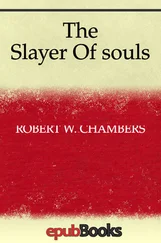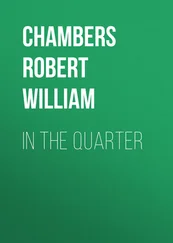Robert Chambers - The Maids of Paradise
Здесь есть возможность читать онлайн «Robert Chambers - The Maids of Paradise» — ознакомительный отрывок электронной книги совершенно бесплатно, а после прочтения отрывка купить полную версию. В некоторых случаях можно слушать аудио, скачать через торрент в формате fb2 и присутствует краткое содержание. Жанр: foreign_prose, на английском языке. Описание произведения, (предисловие) а так же отзывы посетителей доступны на портале библиотеки ЛибКат.
- Название:The Maids of Paradise
- Автор:
- Жанр:
- Год:неизвестен
- ISBN:нет данных
- Рейтинг книги:5 / 5. Голосов: 1
-
Избранное:Добавить в избранное
- Отзывы:
-
Ваша оценка:
- 100
- 1
- 2
- 3
- 4
- 5
The Maids of Paradise: краткое содержание, описание и аннотация
Предлагаем к чтению аннотацию, описание, краткое содержание или предисловие (зависит от того, что написал сам автор книги «The Maids of Paradise»). Если вы не нашли необходимую информацию о книге — напишите в комментариях, мы постараемся отыскать её.
The Maids of Paradise — читать онлайн ознакомительный отрывок
Ниже представлен текст книги, разбитый по страницам. Система сохранения места последней прочитанной страницы, позволяет с удобством читать онлайн бесплатно книгу «The Maids of Paradise», без необходимости каждый раз заново искать на чём Вы остановились. Поставьте закладку, и сможете в любой момент перейти на страницу, на которой закончили чтение.
Интервал:
Закладка:
Bewildered, stupefied, exhausted, the cuirassiers sat in their saddles, staring up at the windows where the Prussians stood and fired. Now and then one would start as from a nightmare, turn his jaded horse, and go limping away down the street. The road was filled with horsemen, wandering helplessly about under the rain of bullets. One, a mere boy, rode up to a door, leaned from his horse and began to knock for admittance; another dismounted and sat down on a doorstep, head buried in his hands, regardless of the bullets which tore the woodwork around him.
The street was still crowded with entrapped cuirassiers, huddled in groups or riding up and down the walls mechanically seeking shelter. A few of these, dismounted, were wearily attempting to drag a heavy cart away from the barricade; the Prussians shot them, one at a time, but others came to help, and a few lancers aided them, and at length they managed to drag a hay-wagon aside, giving a narrow passage to the open country beyond. Instantly the Prussian infantry swarmed out of the houses and into the street, shouting, “Prisoners!” pushing, striking, and dragging the exhausted cuirassiers from their saddles. But contact with the enemy, hand to hand, seemed to revive the fury of the armored riders. The débris of the regiments closed up, long, straight sabres glittered, trembling horses plunged forward, broke into a stiff gallop, and passed through the infantry, through the rent in the barricade, and staggered away across the fields, buried in the smoke of a thousand rifles.
So rode the “Cuirassiers of Morsbronn,” the flower of an empire’s chivalry, the elect of France. So rode the gentlemen of the Sixth Lancers to shiver their slender spears against stone walls – for the honor of France.
Death led them. Death rode with them knee to knee. Death alone halted them. But their shining souls galloped on into that vast Valhalla where their ancestors of Waterloo stood waiting, and the celestial trumpets pealed a last “Dismount!”
VI
THE GAME BEGINS
The room in the turret was now swimming in smoke and lime dust; I could scarcely see the gray figure of the Countess through the powder-mist which drifted in through shutters and loop-hole, dimming the fading daylight.
In the street a dense pall of pungent vapor hung over roof and pavement, motionless in the calm August air; two houses were burning slowly, smothered in smoke; through a ruddy fog I saw the dead lying in mounds, the wounded moving feebly, the Prussian soldiery tossing straw into the hay-carts that had served their deadly purpose.
But oh, the dreadful murmur that filled the heavy air, the tremulous, ceaseless plaint which comes from strong, muscular creatures, tenacious of life, who are dying and who die hard.
Helmeted figures swarmed through the smoke; wagon after wagon, loaded deep with dead cavalrymen, was drawn away by heavy teams of horses now arriving from the regimental transport train, which had come up and halted just at the entrance to the village.
And now wagon-loads of French wounded began to pass, jolting over crushed helmets, rifles, cuirasses, and the carcasses of dead horses.
A covey of Uhlans entered the shambles, picking their way across the wreckage of the battle, a slim, wiry, fastidious company, dainty as spurred gamecocks, with their helmet-cords swinging like wattles and their schapskas tilted rakishly.
Then the sad cortège of prisoners formed in the smoke, the wounded leaning on their silent comrades, bandaged heads hanging, the others erect, defiant, supporting the crippled or standing with arms folded and helmeted heads held high.
And at last they started, between two files of mounted Uhlans – Turcos, line infantrymen, gendarmes, lancers, and, towering head and shoulders above the others, the superb cuirassiers.
A German general and his smartly uniformed staff came clattering up the slippery street and halted to watch the prisoners defile. And, as the first of the captive cuirassiers came abreast of the staff, the general stiffened in his saddle and raised his hand to his helmet, saying to his officers, loud enough for me to hear:
“Salute the brave, gentlemen!”
And the silent, calm-eyed cuirassiers passed on, heads erect, uniforms in shreds, their battered armor foul with smoke and mud, spurs broken, scabbards empty.
Troops of captured horses, conducted by Uhlans, followed the prisoners, then wagons piled high with rifles, sabres, and saddles, then a company of Uhlans cantering away with the shot-torn guidons of the cuirassiers.
Last of all came the wounded in their straw-wadded wagons, escorted by infantry; I heard them coming before I saw them, and, sickened, I closed my ears with my hands; yet even then the deep, monotonous groaning seemed to fill the room and vibrate through the falling shadows long after the last cart had creaked out of sight and hearing into the gathering haze of evening.
The deadened booming of cannon still came steadily from the west, and it needed no messenger to tell me that the First Corps had been hurled back into Alsace, and that MacMahon’s army was in full retreat; that now the Rhine was open and the passage of the Vosges was clear, and Strasbourg must stand siege and Belfort and Toul must man their battlements for a struggle that meant victory, or an Alsace doomed and a Lorraine lost to France forever.
The room had grown very dark, the loop-hole admitting but little of the smoky evening sunset. Some soldiers in the hallway outside finally lighted torches; red reflections danced over the torn ceiling and plaster-covered floor, illuminating a corner where the Countess was sitting by the bedside, her head lying on the covers. How long she had been there I did not know, but when I spoke she raised her head and answered quietly.
In the torch-light her face was ghastly, her eyes red and dim as she came over to me and looked out into the darkness.
The woman was shaken terribly, shaken to the very soul. She had not seen all that I had seen; she had flinched before the spectacle of a butchery too awful to look upon, but she had seen enough, and she had heard enough to support or to confound theories formed through a young girl’s brief, passionless, eventless life.
Under the window soldiers began shooting the crippled horses; the heavy flash and bang of rifles set her trembling again.
Until the firing ceased she stood as though stupefied, scarcely breathing, her splendid hair glistening like molten copper in the red torches’ glare.
A soldier came into the room and dragged the bedclothes from the bed, trailing them across the floor behind him as he departed. An officer holding a lantern peered through the door, his eye-glasses shining, his boots in his hand.
He evidently had intended to get into the bed, but when his gaze fell upon us he withdrew in his stockinged feet.
On the stairs soldiers were eating hunches of stale bread and knocking the necks from wine bottles with their bayonets. One lumpish fellow came to the door and offered me part of a sausage which he was devouring, a kindly act that touched me, and I wondered whether the other prisoners might find among their Uhlan guards the same humanity that moved this half-famished yokel to offer me the food he was gnawing.
Soldiers began to come and go in the room; some carried off chairs for officers below some took the pillows from the bed, one bore away a desk on his broad shoulders.
The Countess never moved or spoke.
The evening had grown chilly; I was cold to my knees.
A soldier offered to build me a fire in the great stone fireplace behind me, and when I assented he calmly smashed a chair to kindling-wood, wrenched off the heavy posts of the bed, and started a fire which lit up the wrecked room with its crimson glare.
Читать дальшеИнтервал:
Закладка:
Похожие книги на «The Maids of Paradise»
Представляем Вашему вниманию похожие книги на «The Maids of Paradise» списком для выбора. Мы отобрали схожую по названию и смыслу литературу в надежде предоставить читателям больше вариантов отыскать новые, интересные, ещё непрочитанные произведения.
Обсуждение, отзывы о книге «The Maids of Paradise» и просто собственные мнения читателей. Оставьте ваши комментарии, напишите, что Вы думаете о произведении, его смысле или главных героях. Укажите что конкретно понравилось, а что нет, и почему Вы так считаете.












